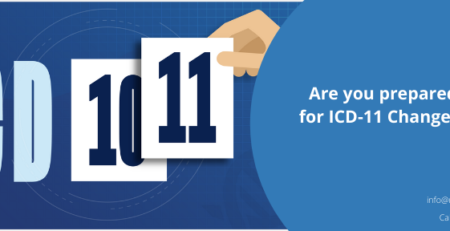Providers always want to provide the right care to the patient as quickly as possible, while the health plans want to ensure treatment choices are appropriate, legitimate, and cost-conscious. The definition of appropriate and legitimate treatment has been updated constantly by insurance carriers creating a lot of issues for providers. American Hospital Association (AHA) recently conducted a survey on how providers are managing prior authorizations. 940 out of 1,000 providers saw delays in care due to prior authorizations (PA) and eight in ten said their patient abandoned treatment while waiting. AHA also reported 89 percent of hospitals and healthcare organizations have seen an increase in denials and 51 percent call this increase significant. Their research directly indicated that claims denials and reimbursement delays stemmed from prior authorization issues. It’s quite common to get your claims denied due to the absence of prior authorizations and insurance carriers are not willing to change their decision. In this article, we shared a few guidelines which might help you in managing such denied claims.
Common Reasons for Denials
Some of the common reasons your practice might be receiving denials due to prior authorizations are as follows:
Constantly changing payer rules
As mentioned earlier, it’s quite common for any insurance carrier to change rules regarding prior authorizations. Any treatment or medication which didn’t require pre-authorization might need one, resulting in unexpected denials.
New payer contract
You might recently contract with a new payer, unaware of their prior authorization procedures, which might result in denial. Other payers may not require prior authorization but this new payer might require one for the same procedure code.
Absence of eligibility and benefits verification
Eligibility and benefits verification is the most important step of medical billing. The benefits report will know if planned services are covered by a health plan or if there is a need for prior authorization.
Billers are inexperienced
It may happen with small practices, where providers themselves do all the work of billing and coding or assigns billing tasks to the front desk person. Payers won’t cover the procedure if you failed to take prior authorization.
Managing Denials
Eligibility and benefits verification
You must undertake eligibility and benefits verification for every single patient visit. It will not only help to find out the need for prior authorization but also collect the maximum amount of patient responsibility. In case the health plan is not covering the planned services then you can communicate with the patient, give them estimates, and also share the mode of payment at the time of service. Have patient info, their insurance info, script ready with you, call insurance rep, and check the requirement of prior authorization. Also keep a list of procedure codes ready with your check, prior authorization requirement.
Accurate coding
Have experienced medical coder in your team, double-check CPT codes. It’s critical for providers to work hand in hand to mitigate denials from having an incorrect procedural code on the prior authorization. For example, if the provider schedules a biopsy that doesn’t need prior approval but then excises a lesion (needs prior approval), the claim for the excision will likely be denied. There’s no penalty for authorizing a procedure and not completing it, so it’s better to check prior authorization requirements with accurate procedure codes.
Appeal a denial decision
Never hesitate to appeal a payer’s decision. Phone calls to the health plan’s medical director, while time-consuming, can be extremely effective in changing outcomes. Keep your documentation accurate and complete. For example, if a provider plans to perform a sigmoidoscopy on a 45-year-old patient, it’s critical to include the fact that the patient’s family history includes colon cancer in a first-degree relative at age 40 on the prior authorization request. Don’t always consider prior authorization denials are ‘hard denials’, at least talk to the payer.
Track every single claim
Track every single claim and categorize submitted claims as paid, pending status, and denied. Categorize denied claims payer-wise and denial reason-wise. Tracking denials by health plan can help your practice identify trends that uncover coverage positions on certain procedures and/or improper coding practices that can be adjusted.
Medisys Data Solutions is a medical billing company providing complete assistance in revenue cycle operations including prior authorizations. We are well versed with payer-wise prior authorization processes for major insurance carriers. After completing eligibility and benefits verification for every patient visit, we update the provider with any prior authorization requirement. To know more about our prior authorization services or specialty wise billing and coding services, contact us info@medisysdata.com/ 302-261-9187












